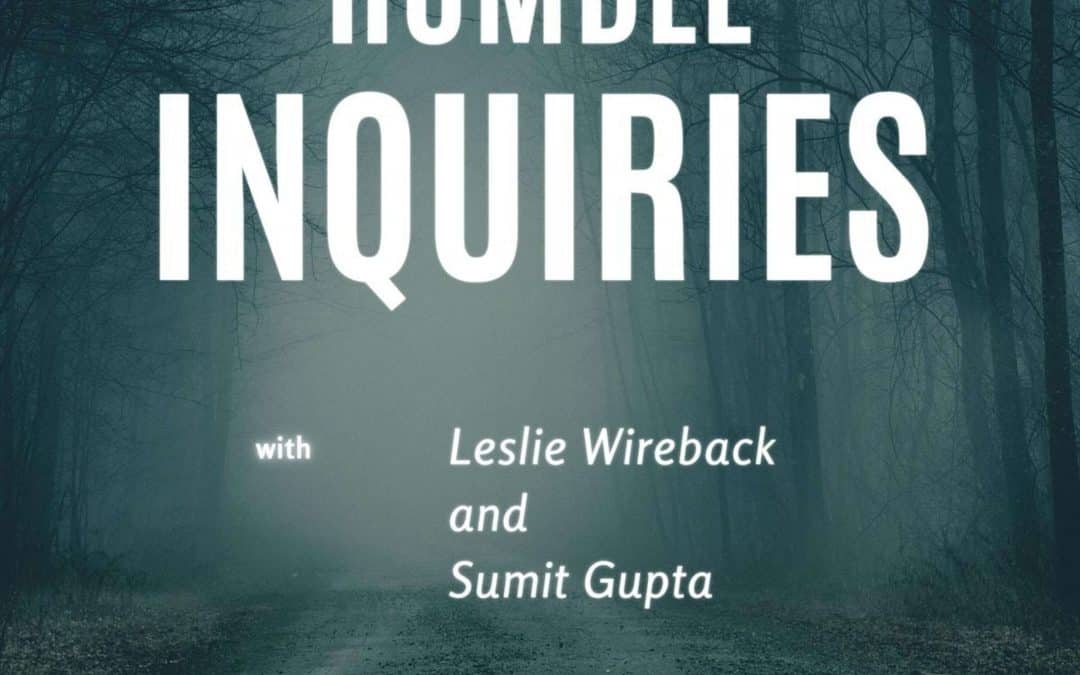This is the Humble Inquiries series. In this episode, Leslie joins me as my co-host to humbly inquire into how to prioritise the long-term and short-term as a leader. How to find the critical balance in business as leaders – where we are responsible for short-term metrics – and yet also for the long-term growth and sustainability of our business?
In each episode of Humble Inquiries, we are deliberately going to put ourselves in the uncomfortable space of not knowing the answer and humbly inquiring about these challenges – with the aim to provoke new thoughts, actions, and practices – to help us better serve our coaching clients, and also to help the leader in you navigate the biggest challenges – at life and at work.
Show Notes
- Sumit – “we all agree on this is a big problem but we still can’t agree on what to do because the structures of the world we live in is still derived or run by a lot of short-term thinking”
- Leslie – ” it’s really, what is that most important thing of where we’re going? So that then as a leader, you can help decide for your team, how. Support the organization in getting there. I think the first is to have courage and ask specific questions to get that direction. “
- Sumit – ” if you realize something is missing from a long-term point of view, The way to do it is not to do it alone, but to build a consensus so that the team or the company can do it as a group, as a unit.”
- Leslie – “Having the courage to ask, and then when you get the answer of the direction, ensuring that’s something that you feel passionate about and is the right thing to do, and you want to do it so that you can convey that to your team.”
- Leslie – “To step into that space and maybe not know how we’re gonna get there. But this is where we know we should be going.”
- Sumit – “it shouldn’t become a match like somebody needs to win and somebody needs to lose. It needs to become a partnership. It needs to become a team effort.”
- Sumit – “it’s very important to measure numbers in the short term, but not to see those numbers going up and down as a direct measure of the performance of your people, of your teams. Because then there is a lot of hidden elements.”
- Sumit – “What if you like hit your numbers, but destroy your reputation in the market, in the industry. So there’s a lot of things which you cannot measure like trust. What if you like, you certainly go through a downturn. And to save cost in the short term you do a round of layoffs, but it destroys the culture and the trust in the organization.”
- Sumit – “If leaders who want to focus on the short term will not get followers, they will automatically have to change.”
- Leslie – “It requires courage and trust in self to know what is right for you.”
- Sumit – “Nothing stops you from sending an email to the CEO or sending an email to, to your high people, higher up in your hierarchy or to or to find them somewhere and to engage them in a conversation.”
- Sumit – “There are many places that you can find help if you go looking for it.”
- Sumit – “That’s the definition of courage, right? Courage is not about giving up at the first disappointment, but courage is about trusting that this is important and then moving forward, no matter how slow or fast the progress is.”
Asquoted by Edgar Schein in his book Humble Inquiry, an humble inquiry is recognizing that insights most often come from conversations and relationships in which we have learned to listen to each other and have learned to respond appropriately, to make joint sense out of our shared context, rather than arguing with each other into submission.


Trackbacks/Pingbacks